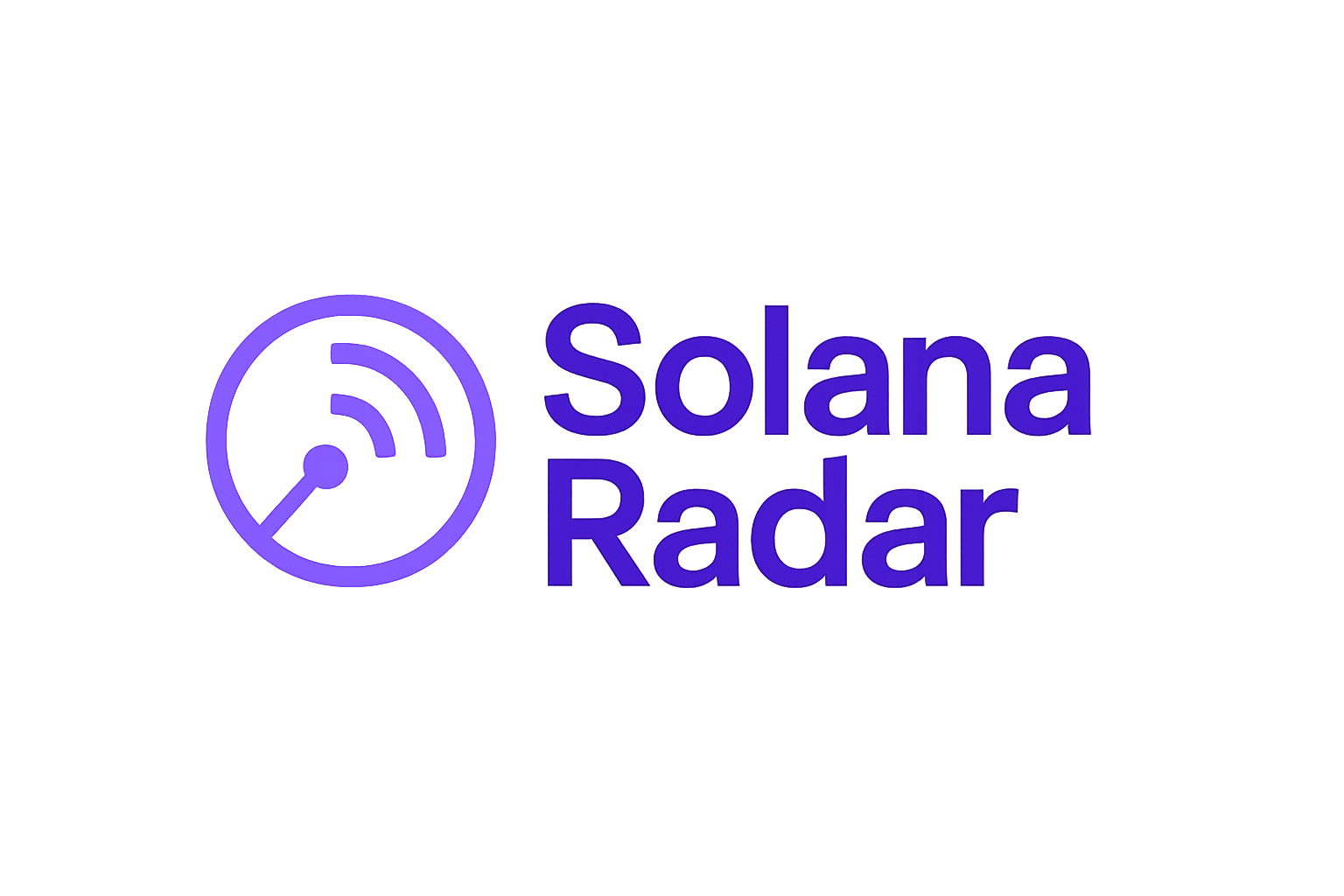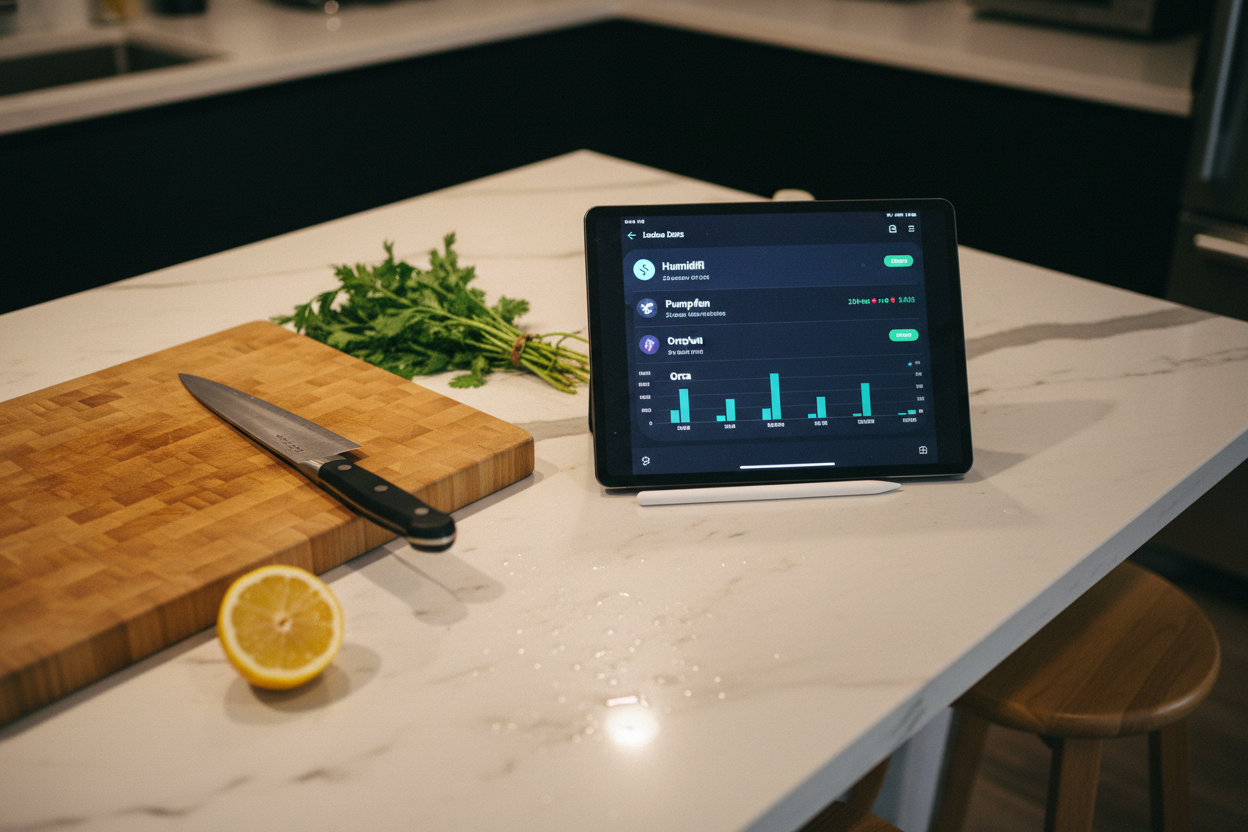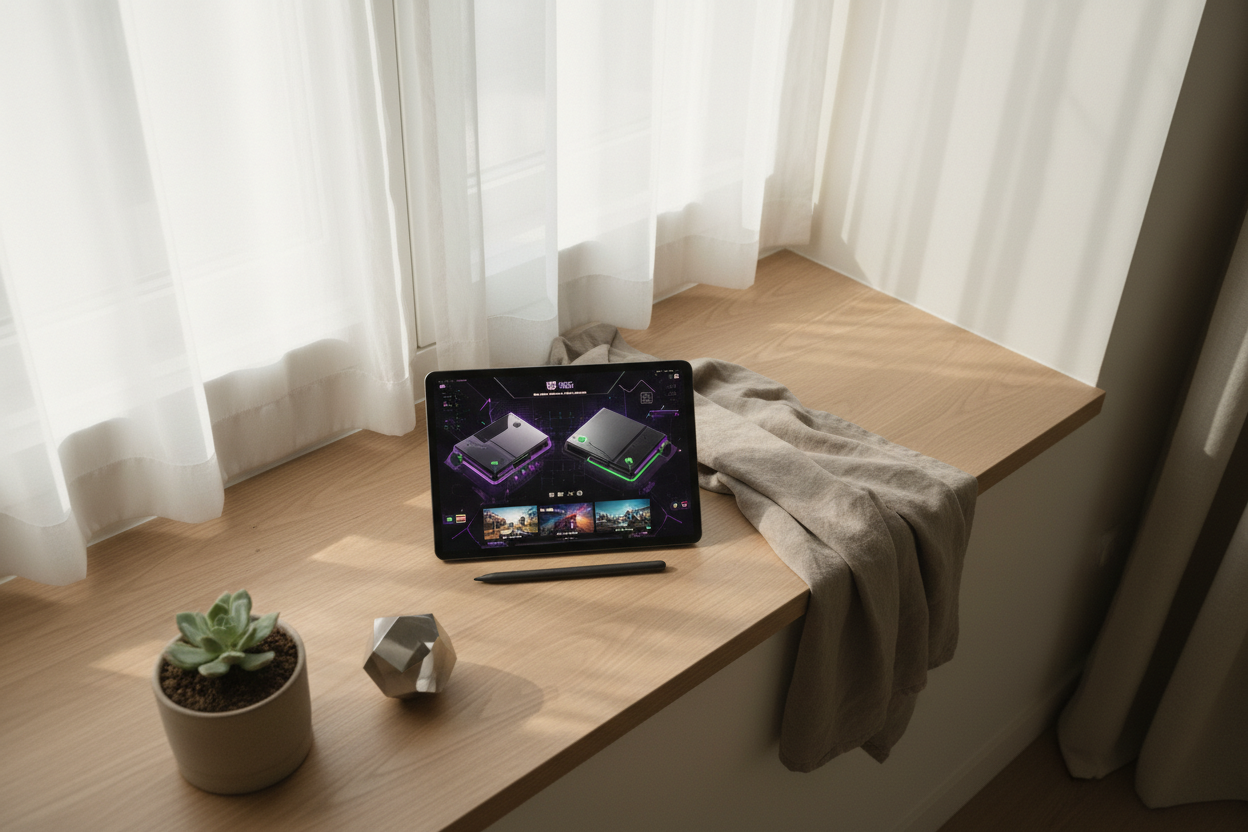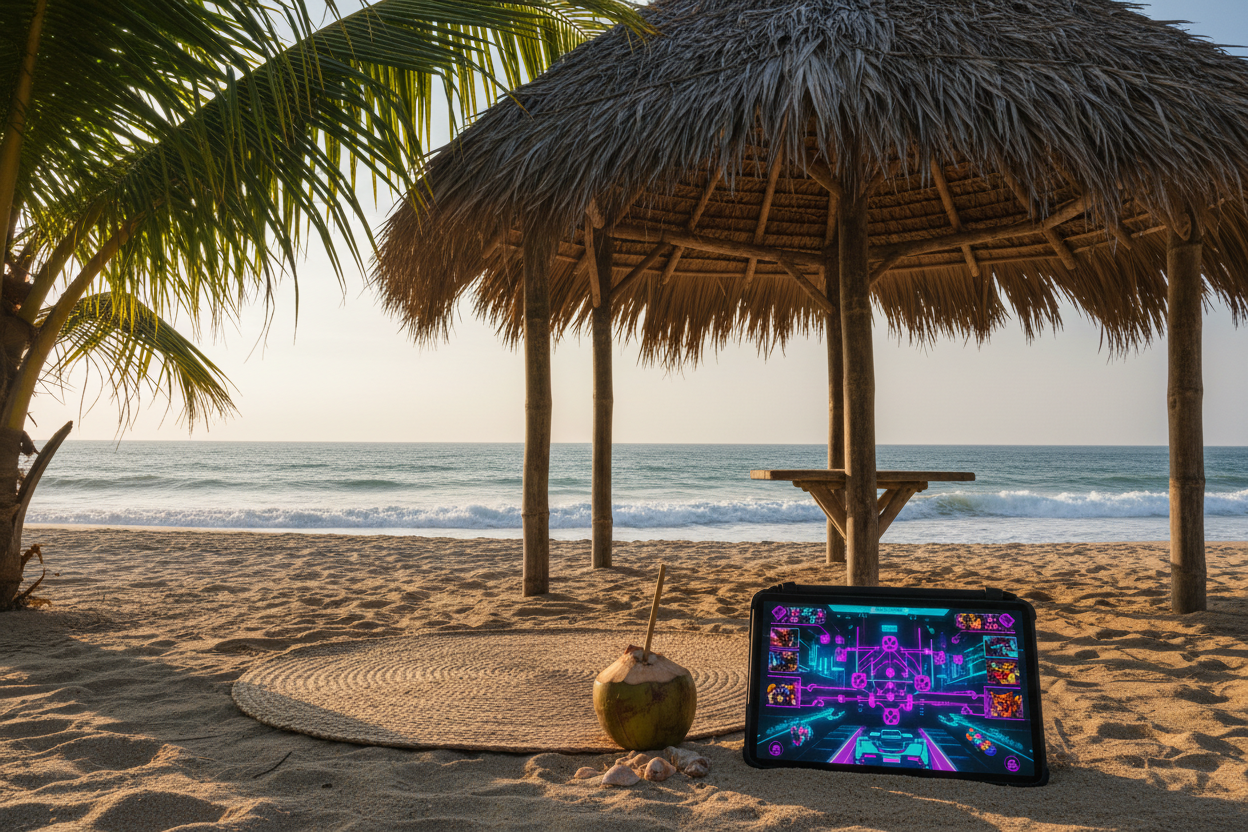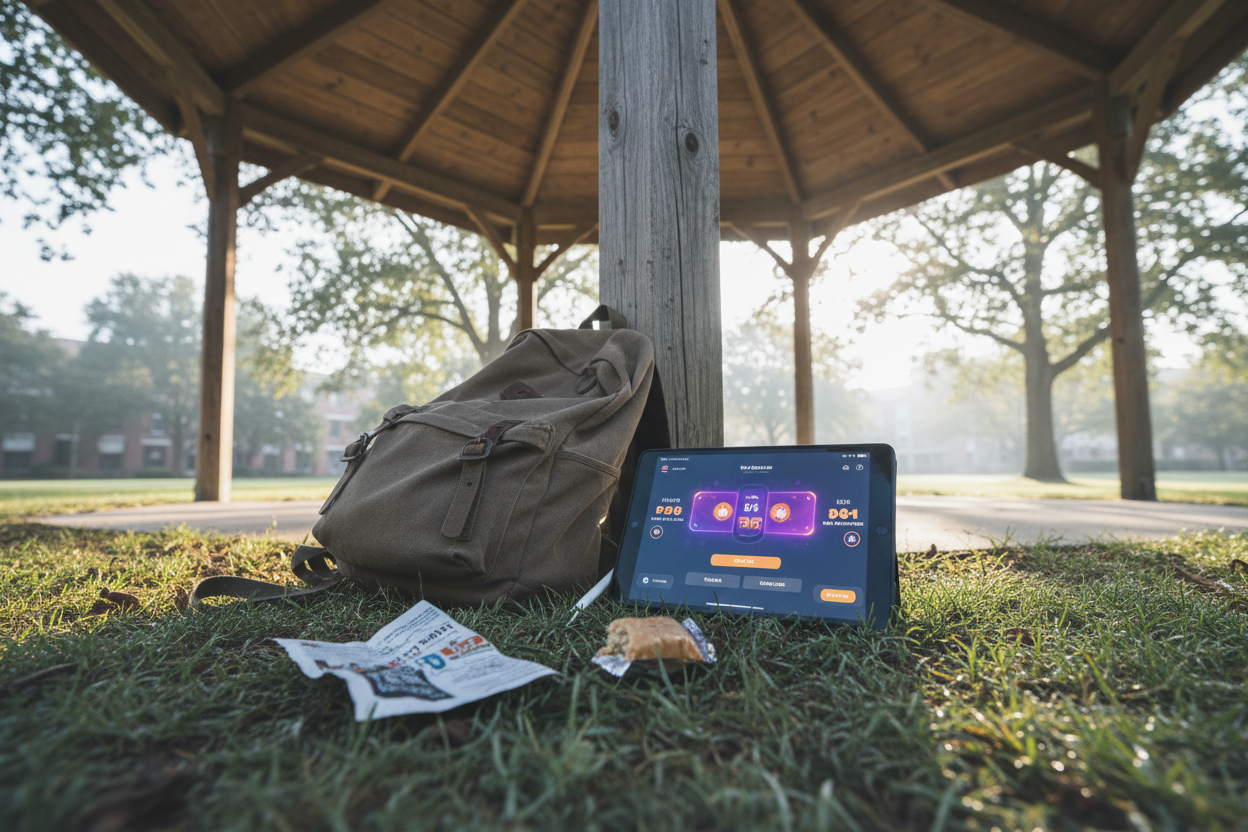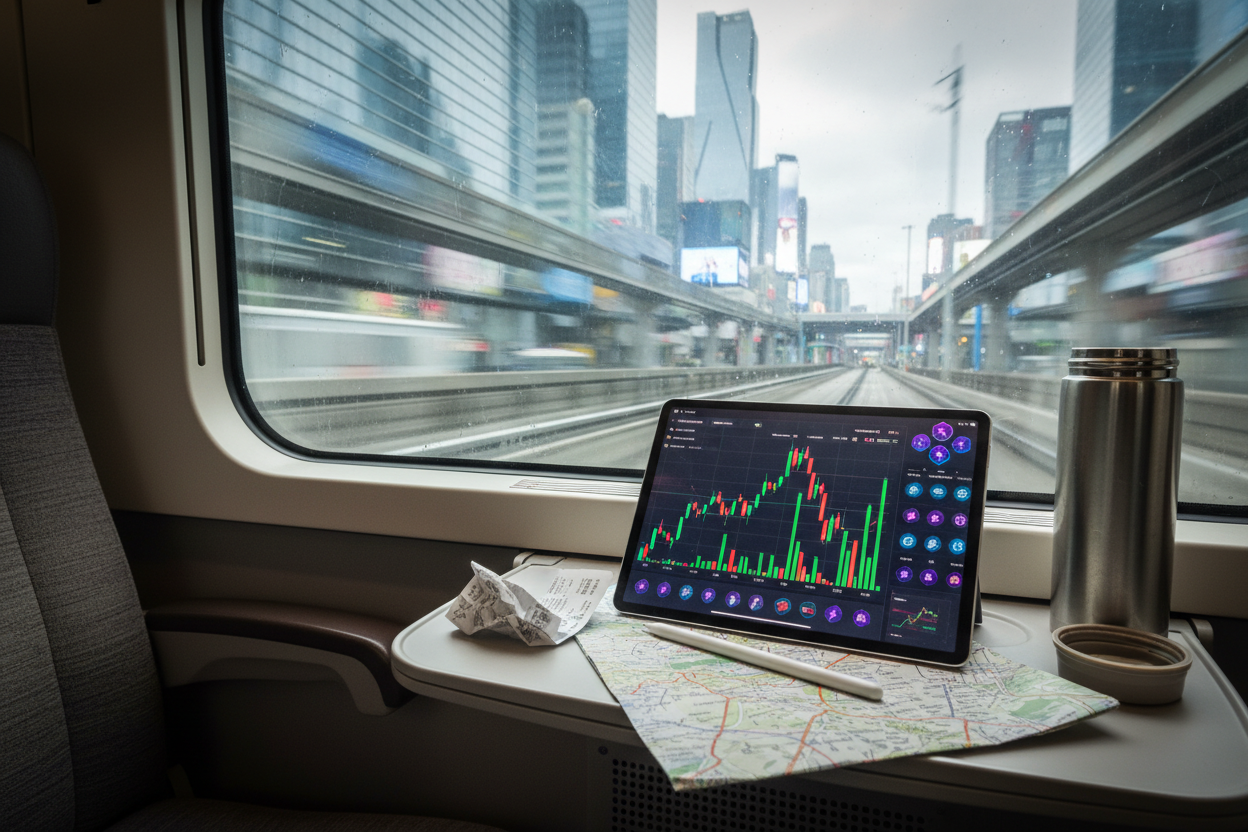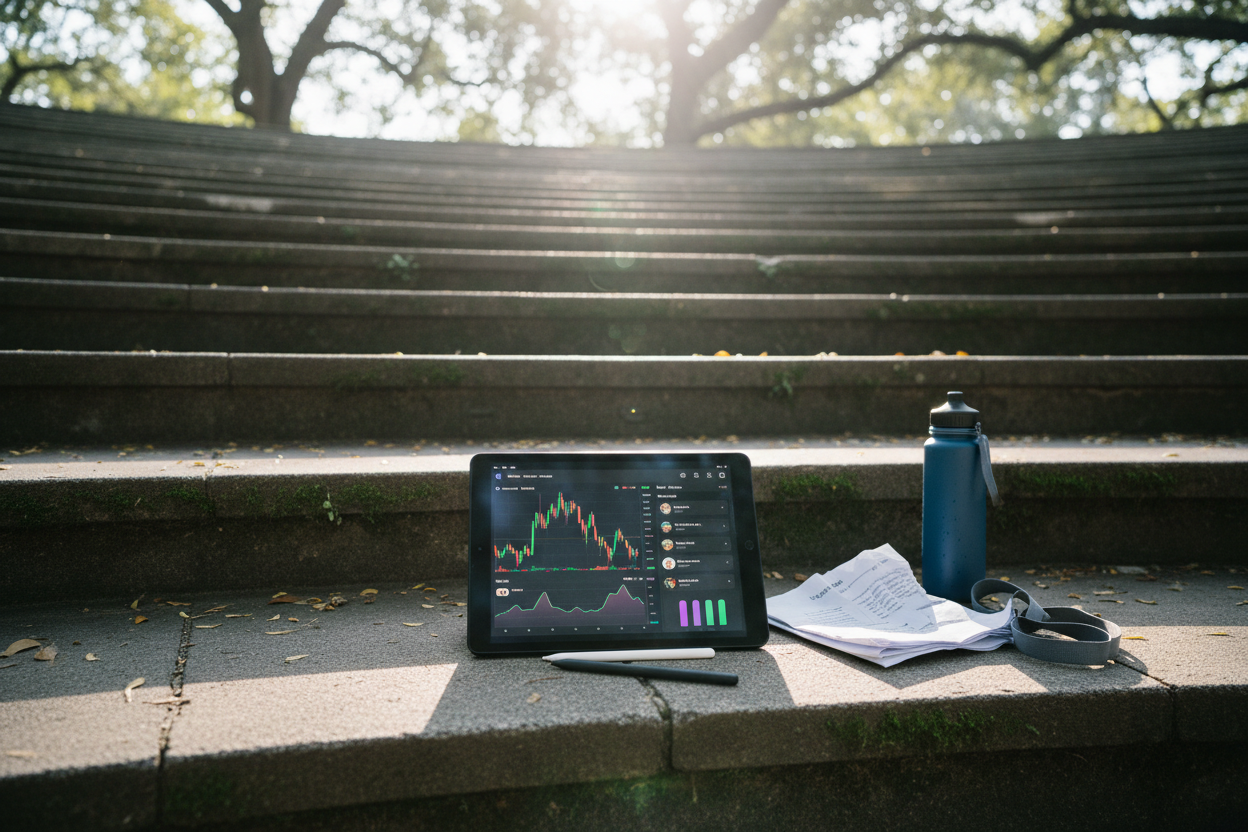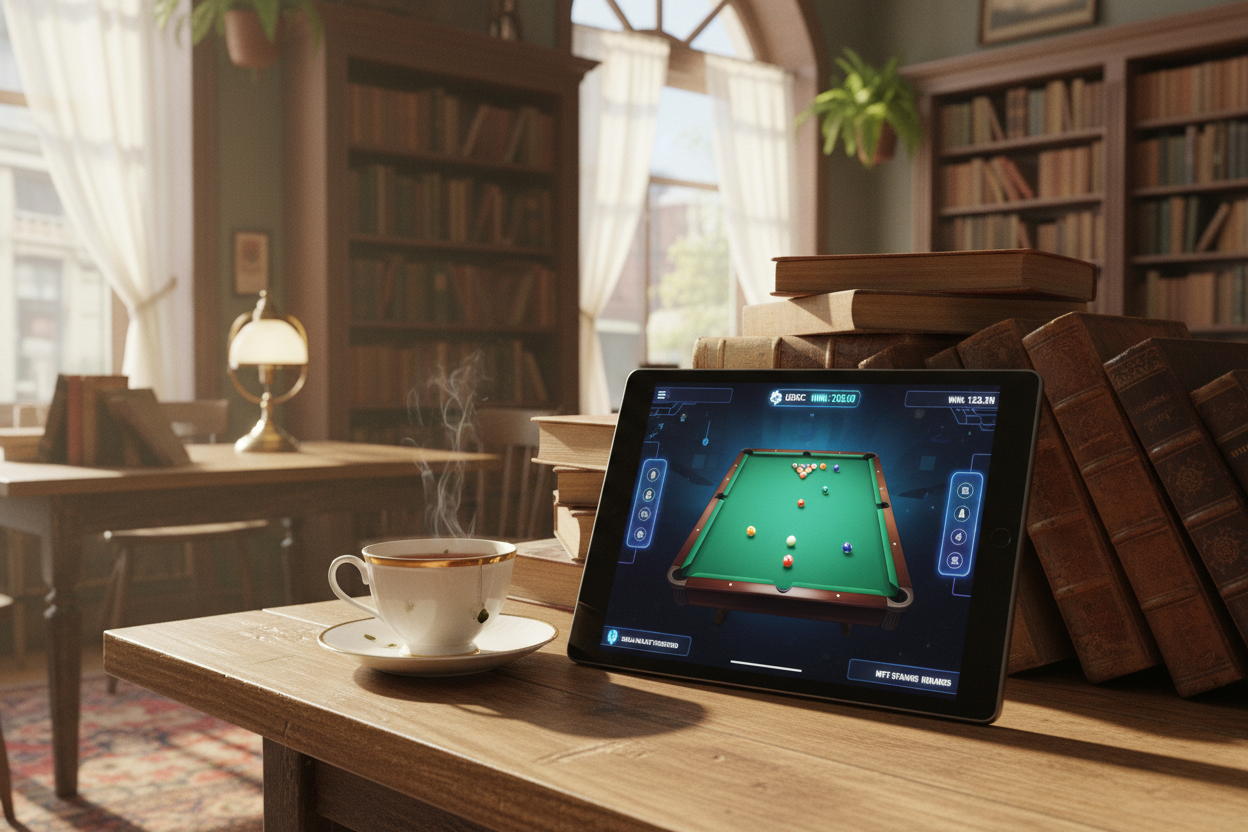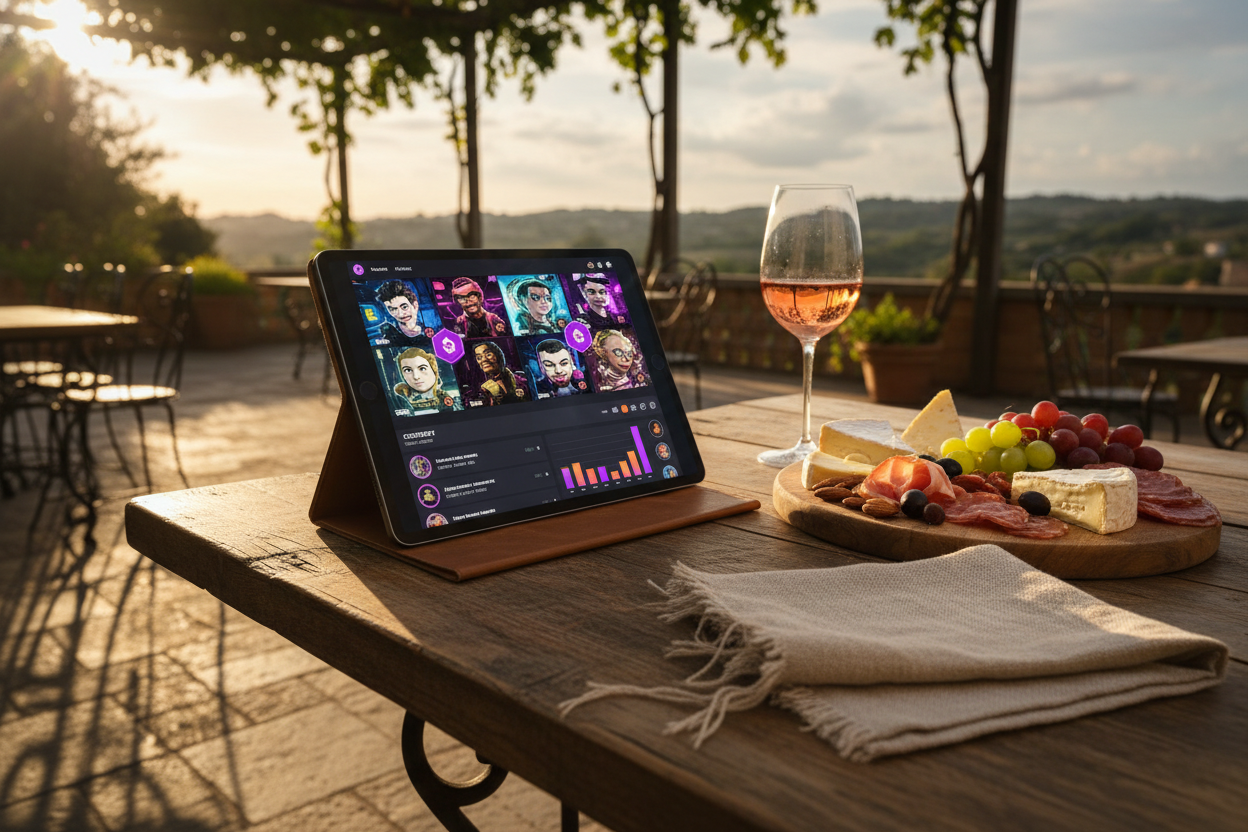How Backpack Became the Leading Solana Trading Platform: Features, UI, and User Experience Review (2025)
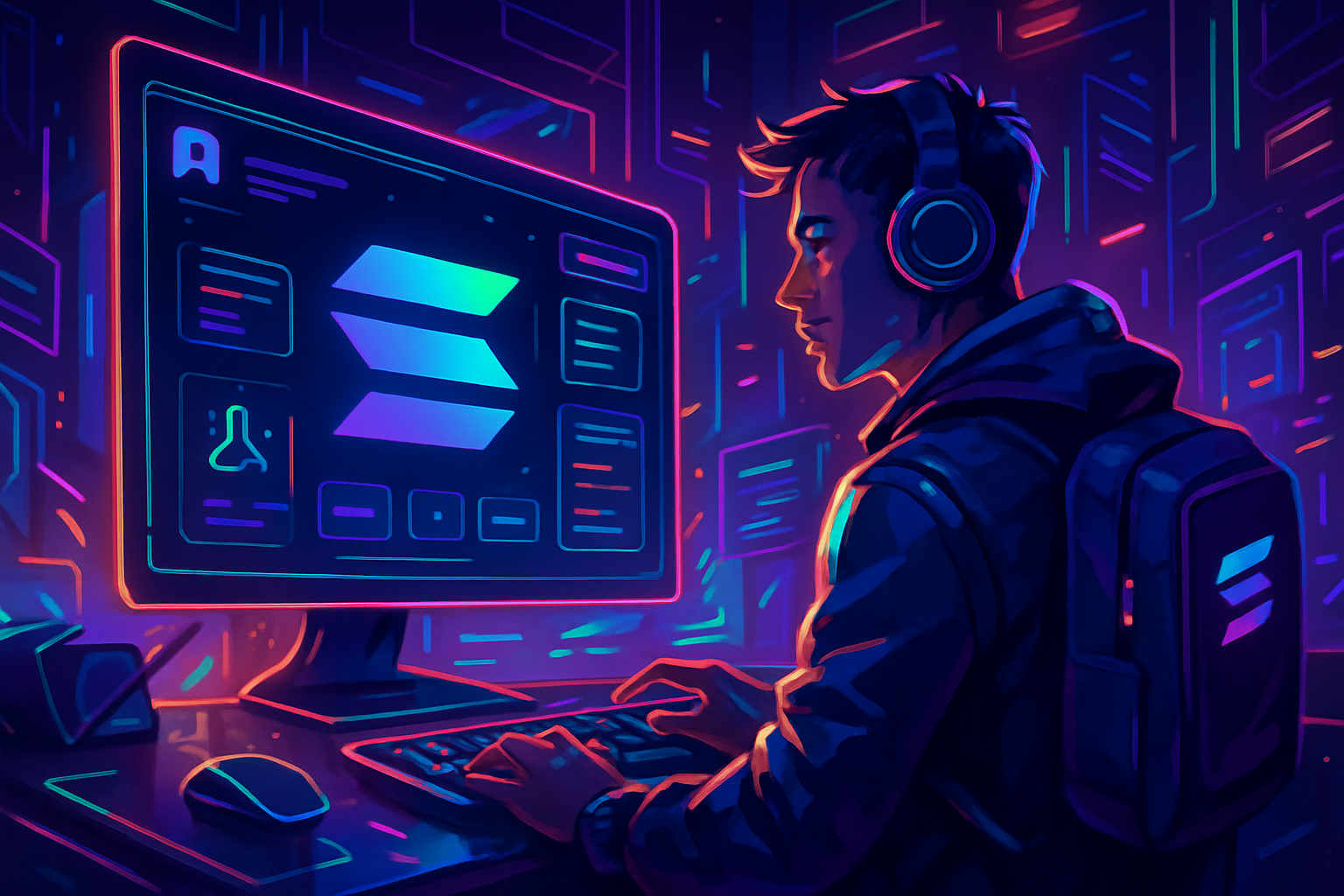
Backpack has rapidly established itself as the best Solana trading platform in 2025, offering a seamless blend of security, usability, and innovation. As Solana’s ecosystem matures and the price of Binance-Peg SOL (SOL) holds steady at $240.46, Backpack’s rise is closely tied to the network’s low fees, lightning-fast confirmations, and an ever-expanding universe of DeFi and NFT opportunities. For both newcomers and seasoned traders, Backpack’s approach to asset management and trading sets a new gold standard.

Why Backpack Dominates Solana Trading in 2025
The surge in Solana adoption has brought a flood of new wallets and exchanges, but few have matched Backpack’s ability to synthesize power with simplicity. Unlike single-chain wallets, Backpack enables users to manage assets across Solana, Ethereum, Arbitrum, and Optimism: all within one streamlined interface. This multi-chain support gives traders flexibility without the need for constant app switching or risky cross-chain bridges.
One feature that truly distinguishes Backpack is its pioneering integration of xNFTs (executable NFTs). These allow users to interact with decentralized applications, like DeFi protocols or blockchain games, directly inside their wallet environment. There’s no need to connect to external dApp sites, which reduces phishing risks and makes onboarding dramatically easier for first-timers.
Key Features Powering the User Experience
- Multi-Chain Asset Management: Store SOL, ETH, ARB, OP tokens plus NFTs from different blockchains in one place.
- xNFT Integration: Run games or DeFi apps natively inside your wallet for maximum safety and convenience.
- Integrated Regulated Exchange: Trade directly within Backpack via a fully licensed exchange under Dubai’s VARA regulations with spot trading and proof-of-reserves transparency.
- User-Friendly Dashboard: Clean design ensures all core features are accessible without clutter or confusion, ideal for beginners yet powerful enough for pros.
- Advanced Security: End-to-end encryption of private keys, biometric login options, hardware wallet support (Ledger/Trezor), plus Collection Locking for NFTs.
This suite of features isn’t just marketing fluff, user reviews consistently highlight how these tools make daily trading smoother while keeping assets safe from evolving threats. For an in-depth look at how these features stack up against other leading platforms, check out this detailed review on SolanaEcho. com.
User Interface: Clean Design Meets Powerful Functionality
The hallmark of Backpack is its dashboard, a masterclass in crypto UI design on Solana. Essential actions like token swaps, NFT transfers, portfolio tracking, and dApp access are never more than two clicks away. The interface feels modern yet familiar; even those new to digital assets can find their way around within minutes.
The experience is further elevated by thoughtful touches: real-time balance updates across chains, customizable watchlists for memecoins or blue-chip NFTs, and granular controls over wallet security settings. For advanced users managing multiple portfolios or engaging in high-frequency trades during volatile periods, such as when SOL experienced its recent 24-hour range between $239.61 and $247.87, these efficiency gains are game-changing.
An additional advantage is how seamlessly Backpack integrates the act of trading into everyday asset management. No need to jump through hoops or sign into separate exchanges; it all happens within the same secure environment, a major reason why active traders have flocked to this platform as their go-to Solana spot trading app in 2025.
Backpack’s focus on user empowerment extends beyond just a sleek interface. The platform’s built-in educational resources and responsive customer support have proven invaluable for onboarding new users to the Solana ecosystem. Whether you’re exploring DeFi protocols, minting NFTs, or tracking the latest memecoin trends, Backpack’s in-app guides and security prompts help users avoid common pitfalls.
Security and Regulation: Raising the Bar for Solana Trading
In 2025, security remains top-of-mind for crypto investors. Backpack distinguishes itself with a robust security architecture anchored by end-to-end encryption of private keys, biometric authentication options, and seamless hardware wallet integrations. Features like Collection Locking provide an extra layer of protection for high-value NFTs, particularly important as blue-chip digital collectibles on Solana continue to appreciate alongside the network’s growing popularity.
Regulatory compliance is another area where Backpack excels. With its exchange operating under Dubai’s VARA license, users benefit from transparent proof-of-reserves and strict anti-money laundering policies. This regulatory clarity gives both institutional and retail traders added confidence when managing assets at current market levels, including the precise $240.46 value of Binance-Peg SOL (SOL) as of today.
Backpack vs. Top Solana Wallets: Feature Comparison
-
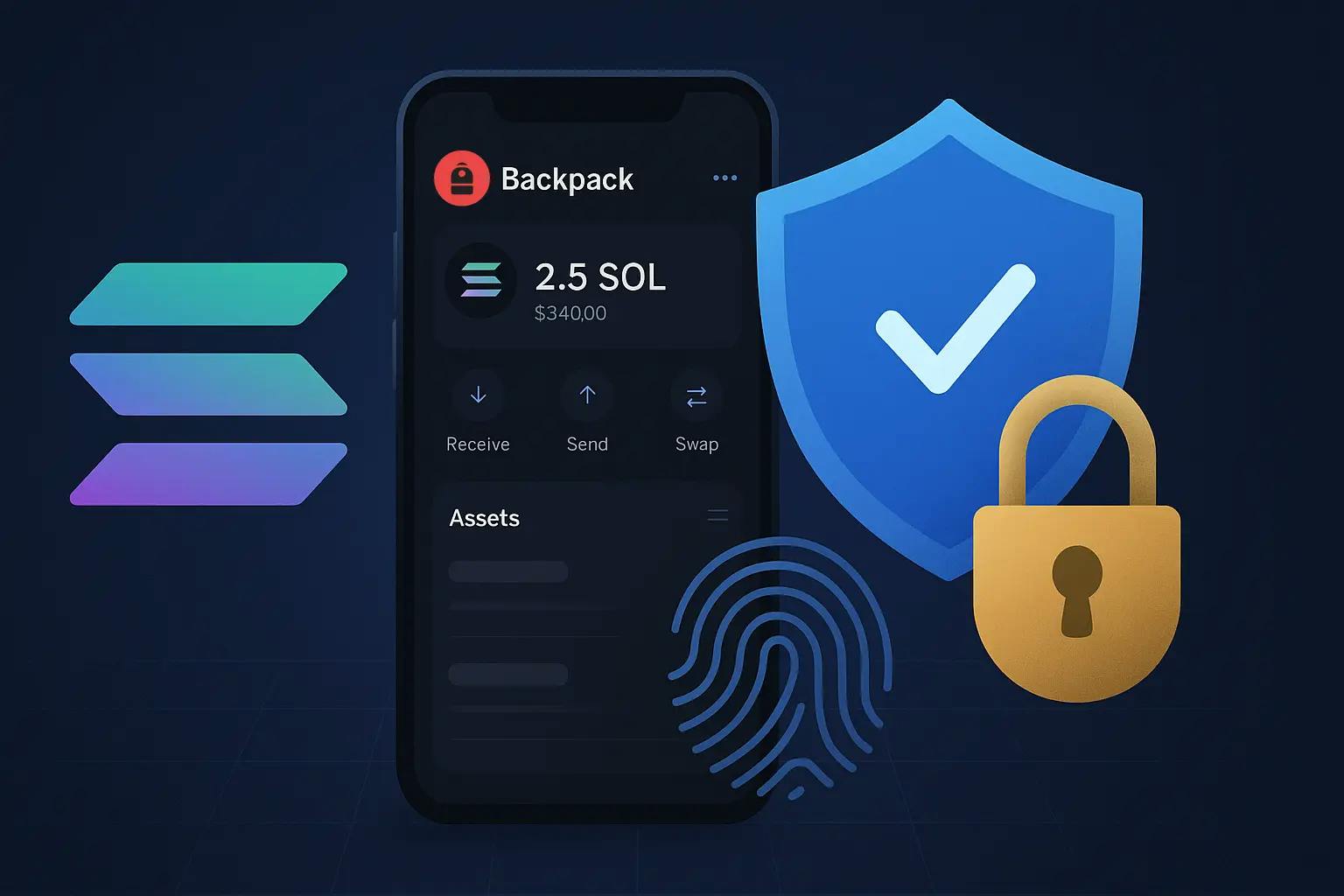
Multi-Chain Asset Support: Backpack stands out by enabling users to manage assets across Solana, Ethereum, Arbitrum, and Optimism within one wallet. In contrast, Phantom and Solflare primarily focus on Solana, with limited or no multi-chain capabilities.
-
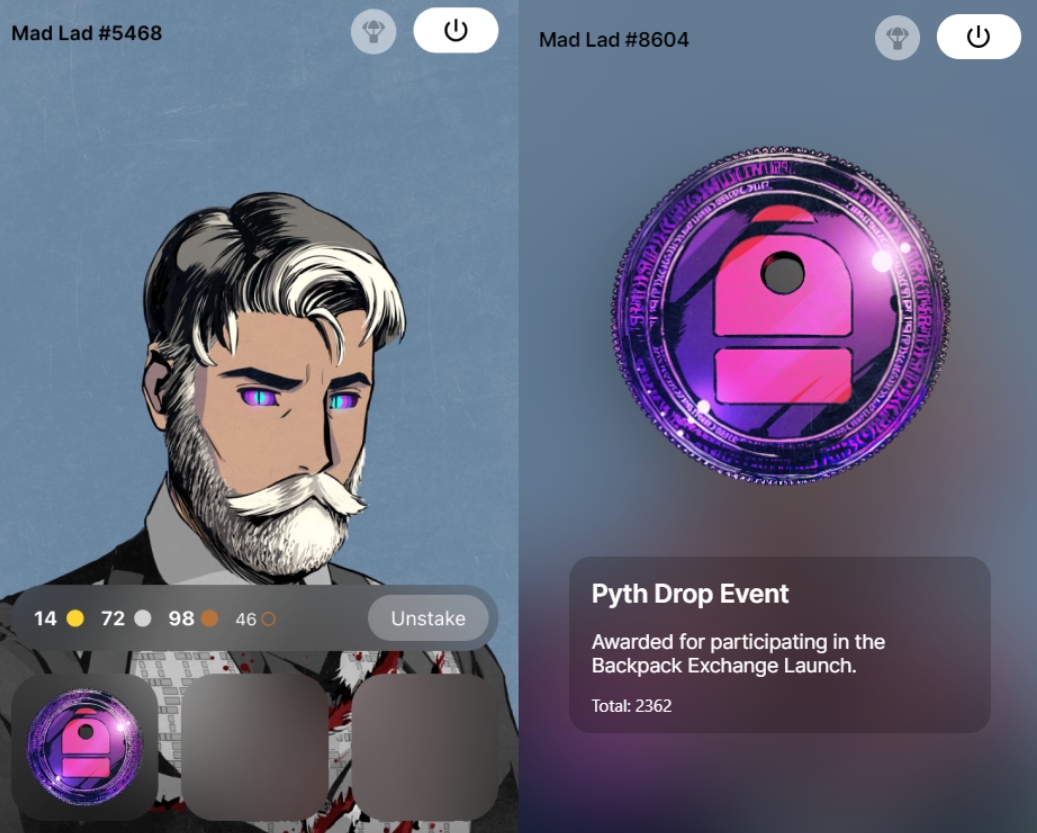
xNFT Integration: Backpack introduces executable NFTs (xNFTs), allowing users to run decentralized apps and games directly inside the wallet. Competing wallets like Phantom and Glow do not currently offer native xNFT support.
-
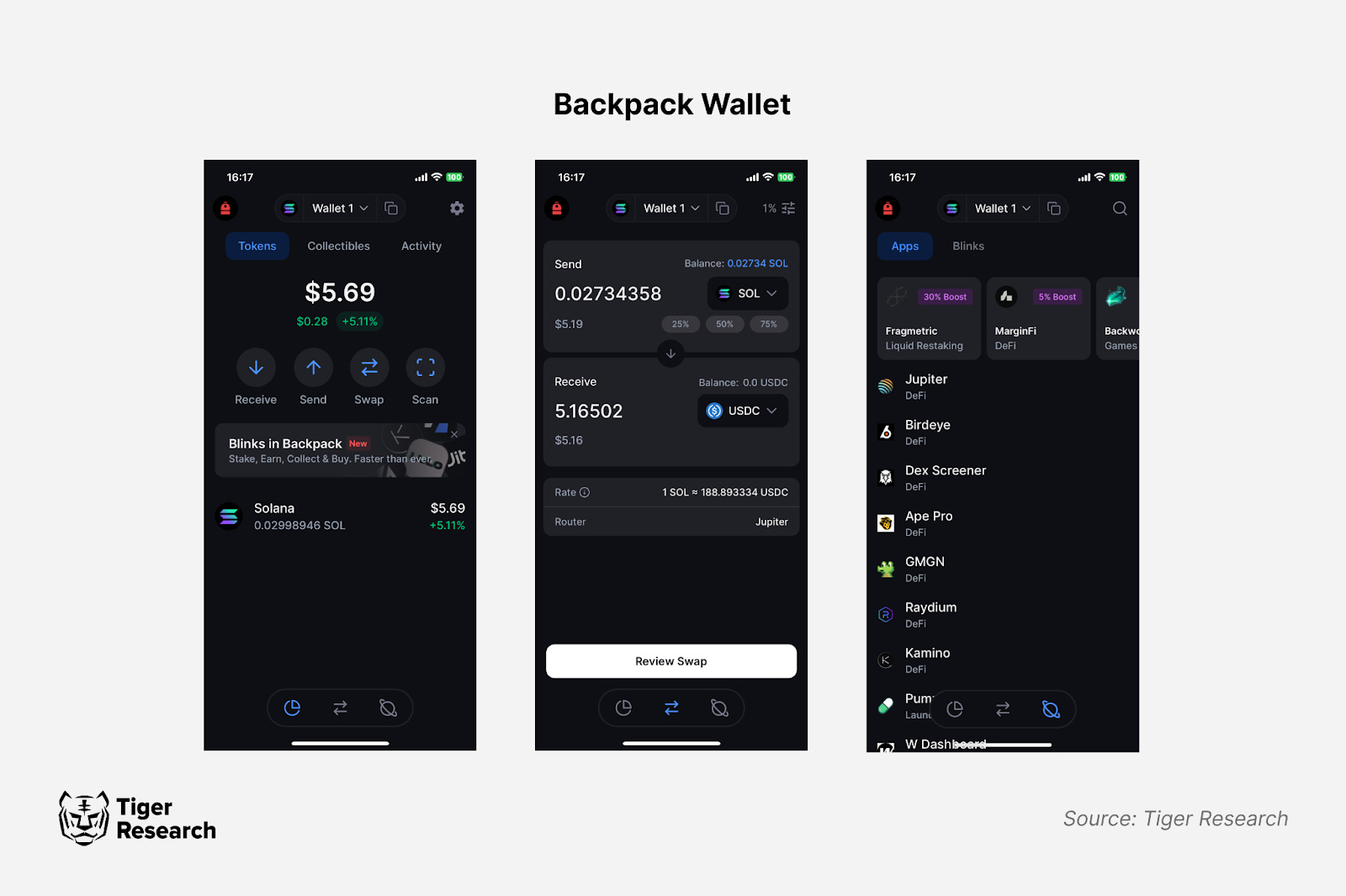
Integrated Regulated Exchange: Backpack features a built-in exchange regulated by Dubai’s VARA, offering spot trading and proof of reserves. Other wallets, such as Phantom and Solflare, rely on third-party DEX integrations and lack direct regulatory oversight.
-
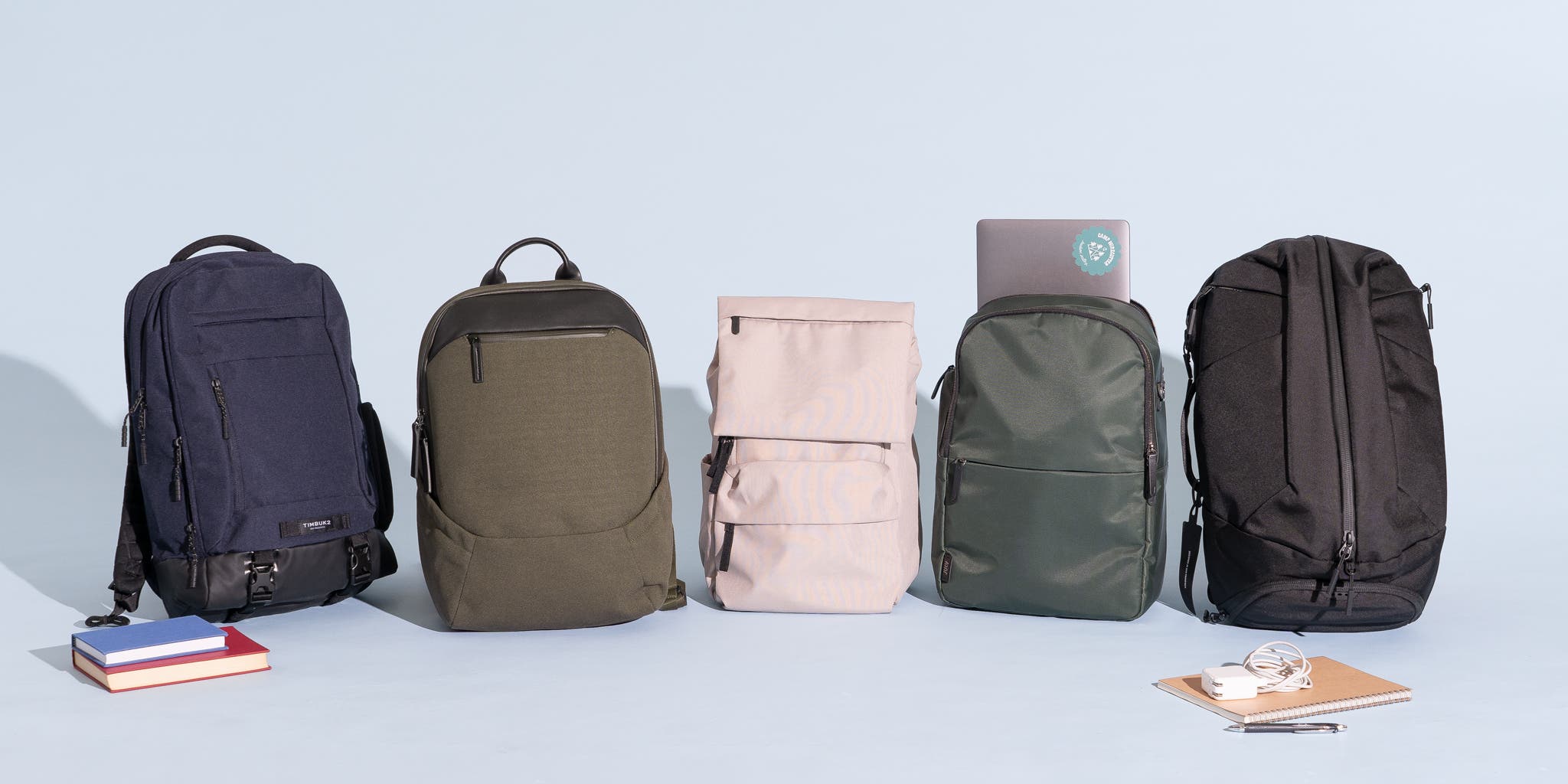
User-Friendly Interface: Backpack’s dashboard is praised for its clean, intuitive design catering to both beginners and advanced users. While Phantom also offers a sleek UI, Backpack’s streamlined navigation between tokens, NFTs, and dApps is frequently highlighted in user reviews.
-
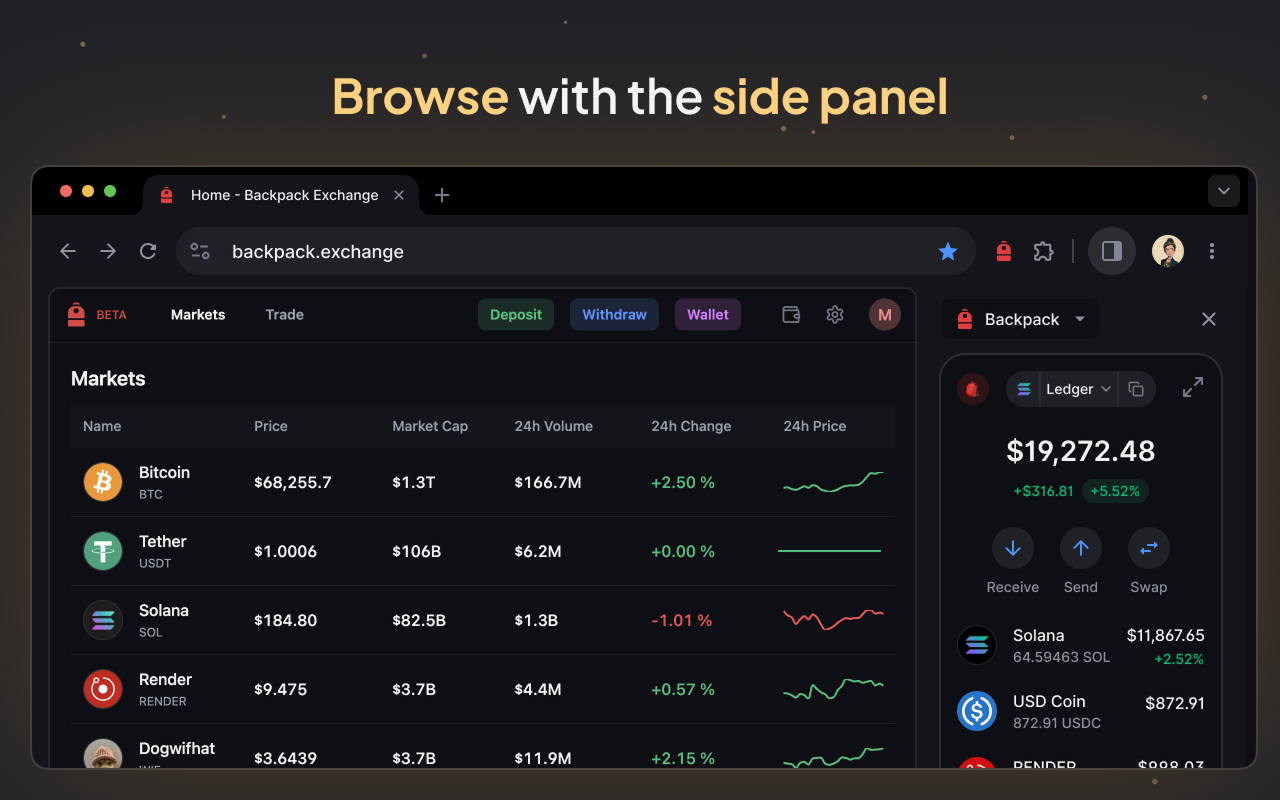
Advanced Security Features: Backpack implements end-to-end encryption, biometric authentication, hardware wallet integration (Ledger, Trezor), and Collection Locking for NFTs. While Solflare and Phantom offer hardware wallet support, Backpack’s granular NFT protections and active bug bounty program set it apart.
Community Response and Ecosystem Impact
The positive feedback from the Solana community has been overwhelming. Social channels are filled with testimonials lauding Backpack’s reliability during high-traffic events like NFT mints or volatile memecoin launches. The wallet’s ability to handle rapid-fire transactions without lag or errors has made it a favorite among NFT collectors and DeFi power users alike.
This groundswell of support is reflected in growing adoption numbers and consistently high ratings in independent reviews, such as an impressive 8.75/10 for trading fees according to Traders Union (source). The integration of xNFTs has also spurred a wave of innovation among developers who now build games, DeFi tools, and interactive experiences directly for the Backpack ecosystem.
Why Backpack Is Poised to Lead Beyond 2025
As competition intensifies among Solana wallets and exchanges, Backpack’s relentless pace of innovation keeps it one step ahead. Its all-in-one approach, combining multi-chain asset management, regulated spot trading, native dApp execution via xNFTs, and advanced security, addresses every major pain point faced by crypto traders today.
Looking forward, expect further enhancements: deeper DeFi integrations, AI-powered portfolio analytics, expanded hardware wallet compatibility, and continued leadership in regulatory compliance. For anyone seeking the best Solana trading platform in 2025, Backpack stands out not just as a utility but as a gateway to everything the modern blockchain ecosystem has to offer.
